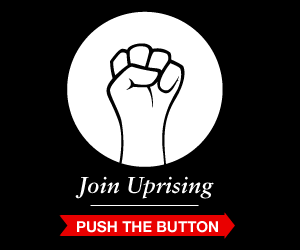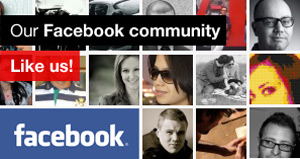Sparking of Social Movements
Posted on 3rd Jan 2012 by Elizabeth Kiehner in BlogToday's hyper-connected world is pervaded by social media that have become so implicated in our daily lives that we often don't stop to think how these engines of information affect everything from what we buy, to who we know, to how we communicate.
Social networks such as Facebook, Twitter, YouTube, and Tumblr have vastly transformed the possibilities and limitations to how we as a culture protest, revolt, and attempt to effect social change. In a day and age in which we don't even necessarily have to know our Facebook "friends," it goes without saying that the notion of "leadership," especially in relation to social movements, is a vexed concept still very much in flux.
Today's political issues and infrastructures differ drastically from the days when powerful individuals like Gandhi and Martin Luther King, Jr., emerged as leaders to ignite powerful social movements and change history. The present-day mode of protesting is set against a pluralistic, multi-vocal landscape, and is particularly notable in movements such as Occupy Wall Street, Arab Spring, and even the Tea Party.
Compared to movements in the past, which were dominated by strong, pre-eminent leaders, these relatively new movements are upheld with plural organizations which are strikingly lacking in individual leaders. Though perhaps things are transforming too quickly to make sweeping generalizations about them or to determine whether or not leaders will emerge, the more important question might be whether or not it's even possible to have leaders for these movements in today's political and social climate.
Mostly claiming to be grassroots organizations, these movements embody the manifold cultural changes that protesting in a social media-saturated world implicate: protestors Tweet their whereabouts, YouTube videos of various protests pervade the internet, and our friends and "friends" post articles, videos, and pictures to their Facebook pages of everything from goings-on in Zuccotti park to the latest eviction of gypsy travelers from Irish trailer parks to protests in Damascus. Information travels around the world at record speed, and it seems easy to at the very least be aware of what is going on, whether it's in downtown Manhattan or Cairo. Is a constant stream of Internet presence enough to uphold an entire movement if, say, the actual physical presence of people dwindles in the Occupy Wall Street movement as a result of cold weather and government push-back?
Occupy Wall Street has been criticized for having nebulous goals and confused, chaotic organization. Though grievances against capitalistic corruption circulate around the protests, the existence of any one message is lost in a blur of many personal issues being voiced. Slavoj Žižek, a Slovenian philosopher and political and film theorist, writes for the Guardian that "the protesters should fall in love with hard and patient work -- they are the beginning, not the end." What the Occupy Wall Street movement has achieved is creating an alternate space, a space in which the intangible, wieldy world of social media crosses with that of physical bodies. Striking the balance between cyberspace and literal space with regard to these protests seems to be the key to any hoped for success.
When the Egyptian government somewhat successfully eliminated its nation's access to the Internet, for instance, an attempt to keep protesters from organizing through social media, it brought tens of thousands of demonstrators into the streets. Arab Spring's varied techniques for protesting perhaps helped them achieve their goals, yet the question remains what happens next?
Many feel that collective, virtual media like Twitter and Facebook allow us all to feel implicated in a protean array of current events and happenings. Yet can such a strong Internet presence alone truly effect change? It seems that although virtual media means being able to reach a much broader and larger audience, somehow the lack of a physical, human presence creates a rupture in the notion of protesting. However, in a world filled with ubiquitous smart phones, perhaps the nature of protest and social movements really has changed: protests and other politically charged happenings are also occurring, on screens, literally texted and palmed in each of our own hands, and it is up to us to look towards future social movements with strength, care, and understanding for the consequences of this kind of vicarious involvement, as leaders in the past dealt with literally physical sit-ins and demonstrations.
Ultimately, these movements signify achievements in changing day-to-day interactions, thereby creating sites for discussions about what protestors do want. The silence created in this space is somewhat ominous. If there is no strong leader or one main idea to unify any particular group, who or what will fill this space? In recent weeks, the Republican party in the United States, for example, has shuttled with rapid-fire quickness from a number of front-running candidates whose felicities of fortune have risen and fallen and been greatly influenced by the velocity of on-line rumor and revelation.
In such an environment, can one leader of the pack finally emerge? Should one? In Egypt, in another instance, commercials from Coca-Cola fund the revolution. Will advertising and social media be the new leaders? It is important to look to the past and to the future and remember that we are all humans, and though the Internet is its own being, it is up to us to discern and retain our humanness in the midst of its collective gestalt, and find the "why" behind what we are doing.
blog comments powered by Disqus








